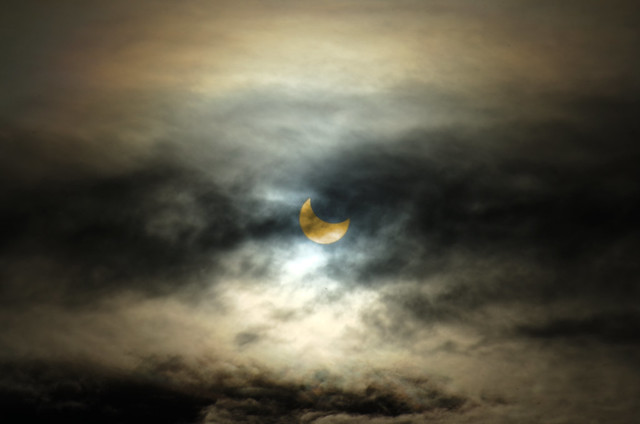syzygy /SIZ-i-jee/. noun. The conjunction or opposition of two astronomical bodies, particularly involving the Sun, so usually the Sun and the moon (new moon and full moon). A pair of connected or correlative things. The combination of two feet in one meter, such as iamb (du-DUM), trochee (DUM-du), and spondee (DUM-DUM). In biology, the conjunction of two organisms without either losing their identity. Also, a mathematical concept I can’t really understand, much less explain plainly. From the Greek syzygia: a pair of yoked animals, a union of two.
“…the Gallian moon rose upon the western horizon, it was observed that she had entered upon her last quarter. She had taken only four days to pass from syzygy to quadrature” (Jules Verne)
“…for no one who has once appreciated Coleridge’s command of vowel-syzygy and the velvet-like texture of his blank verse can refuse him…” (A. H. Cruickshank)
“That the confluence of perihelion and syzygy would levitate the oceans. That the sky was falling—” (Martin Amis)




